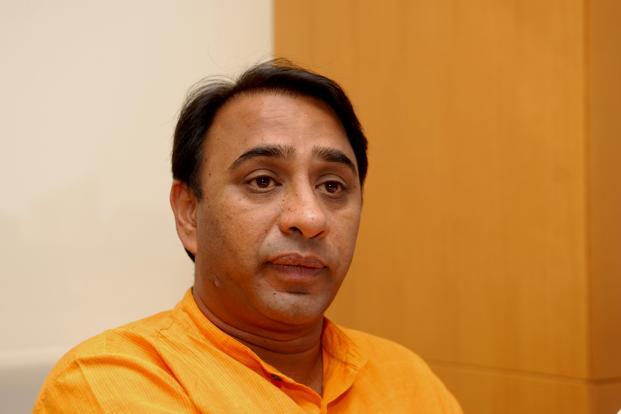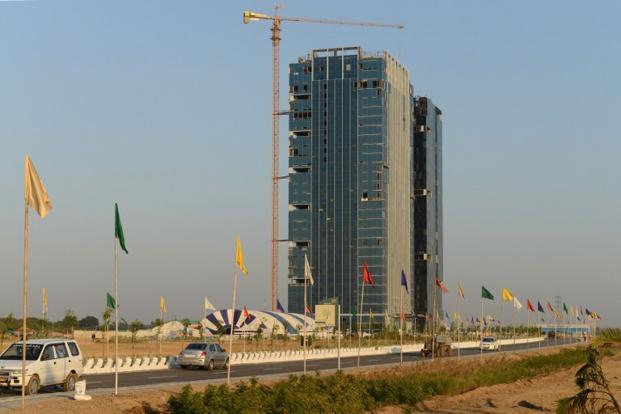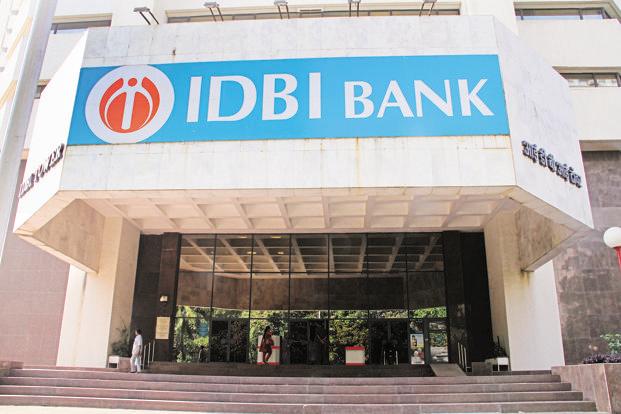Indian microfinance industry’s poster boy Vikram Akula wants to come back to the industry. His return to the board of listed SKS Microfinance Ltd, a company which he had to leave after a bitter battle with the top management in late 2011, may not be a cakewalk but, at the same time, the current SKS management and board will not find it easy to block his return for long.
What is the provocation for the SKS Trust, the original promoter of the company, pushing for Akula as its representative on the board? This has something to do with the creation of Telangana as the 29th state of India in a backward region lacking development, mostly the areas of the erstwhile princely Nizam state where opportunities are enormous. Akula has deep knowledge of doing business in Telangana and political connectivity with that region, which the company’s current senior executives lack. SKS’s managing director and chief executive officer M.R. Rao is from coastal Andhra and chief financial officer Dilli Raj is from Tamil Nadu.
The Trust and Akula are fairly certain that once Telangana is created, the new state will repeal the 2010 law of Andhra Pradesh which made microfinance business difficult in the southern state. SKS had to write off a hefty amount as borrowers refused to pay and it took seven quarters to claw back to the black. In Telangana, led by ‘son of the soil’ Akula, it can start recovering bad debt and build new business. Once it strengthens its hold in Telangana, with business spread over other 19 Indian states, Andhra Pradesh will no longer remain a nightmare for SKS.
Akula has the passion and vision but he became a victim of corporate politics. He is also well known to the global investors; so raising money globally will be easier for SKS with him on the board. But the top management has strong reservations against his entry. The reasons are many.
First, the company has started making profits and Akula may rock the boat with his reservations against the current business model. From a pure-play microfinance institution, SKS has started dabbling in selling other financial products, including insurance and gold. It has converted itself from a microfinance institution to a multi-product rural financial services company. The decision to change the business model was taken in August 2011. Akula apparently endorsed it in the beginning but started opposing it later.
Second, Rao and Raj do not get along with Akula. Backed by the duo, Akula threw former chief executive Suresh Gurumani out after SKS’s blockbuster initial public offering, but after that mission was accomplished, the group split, with Akula in one camp and the duo in the other. Rao took Gurumani’s place after his ouster but by that time the business model of SKS had changed and Akula was distinctly uncomfortable with that. He tried to intervene but did not succeed. Akula threw Gurumani out, but when Rao and Raj joined hands against him, he could not handle them. In the end, he had to leave SKS as he also could not handle the private equity investors.
The third and final reason is every private equity fund has a life cycle and after five to seven years, they need to give returns to their investors. So, board members such as Paresh Patel, chief executive of Sandstone Capital Advisors, and Sumir Chadha, managing director of WestBridge Capital, are now looking for an exit and Akula’s entry into the company can complicate things for them.
After Ranjana Kumar’s resignation, the SKS board has seven members and it can definitely accommodate one more. The Trust, which has raised its stake from around 7.6% to 12.6% by buying shares from the market in the past six months, wants Akula to be its representative. The Companies Act of 1956 does not provide any specific privilege to any shareholder irrespective of his shareholding but under section 169 of the law, any shareholder who holds a 10% stake can call an extraordinary general meeting. By convention, such a shareholder also gets a board seat. Patel and Chadha are on the board despite Sandstone Capital and WestBridge holding much less than 10% stake in SKS.
So, the management does not have the moral right to say no to the idea of the Trust having its nominee on the board. At best, it can request the Trust to nominate somebody else instead of Akula. In fact, it has already done so. But Biksham Gujja, the chairman of the Trust, is not willing to accept that. Known as the water man of India, Gujja’s contribution to agriculture and water management is legendary. Between 1993 and 2010, he worked with the World Wildlife Fund, driving an initiative to protect freshwater ecosystems. He joined the Fund from Deccan Development Society, a non-profit organization involved in food security, ecological agriculture and alternative education in rural Andhra Pradesh, where he worked with Akula.
Akula, who founded SKS as a non-profit organization in 1997, had to step down as chairperson in 2011 unceremoniously; he had plans to start a new initiative in the mobile banking space. Now, he seems to have abandoned that idea and is too keen to start a second innings at SKS with Gujja’s support. As a pre-emptive measure, the management has postponed the annual general meeting of the company by three months; it has also shifted the registered office of SKS from Hyderabad to Mumbai. This means, the annual general meeting will be held in Mumbai where SKS Trust does not have any clout. This will make the meeting less noisy but technically it will be difficult to keep Akula out for long. Also, by shifting the registered office to Mumbai, SKS management may not be able to exploit the Telangana advantage.



